The event is related to the Centre of Excellence in Estonian Studies (European Union, European Regional Development Fund) and to the research project IUT20-5 (Estonian Ministry of Education and Research).

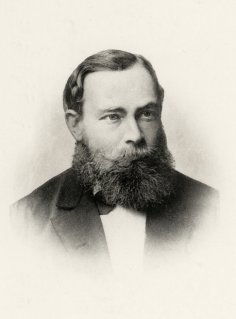
Gottlob Frege nimelised loengud teoreetilises filosoofias on saanud oma nime saksa matemaatiku ja filosoofi Friedrich Ludwig Gottlob Frege järgi. Me oleme valinud tema oma loengute patrooniks, sest ta on üleüldiselt tundud oma selguse, tagasihoidlikkuse ja no-nonsense stiili järgi filosoofiliste probleemide lahendamisel. Neile tunnustele püüdlevad ka Tartus peetavad loengud.

EMMA BORG (London) „TEGUTSEMISE ALUSED“
Emma Borg on Londoni Ülikooli filosoofia instituudi professor. Tema peamised uurimisvaldkonnad on keelefilosoofia, vaimufilosoofia ja ärieetika. Borg on raamatute „Minimal Semantics“ (2004) ja „Pursuing Meaning“ (2012), aga ka kahe veel ilmuva raamatu autor: „A Very Short Introduction to Meaning“ ja „Acting for Reasons: In Defence of Common-Sense Psychology“ (kõik Oxfordi ülikooli kirjastuses). Viimane raamat on ka ta Frege loengute aluseks.
Loengud
Kas inimesed teevad üldiselt seda, mida nad teevad, alustel, mis neil tegutsemiseks on? Filosoofia standardvastus – tervemõistuslik psühholoogia ehk rahvapsühholoogia – ütleb, et jah. Kuid viimasel ajal on idee, et inimesed on üldiselt ratsionaalsed, aluste suhtes tundlikud olendid, sattunud märkimisväärse surve alla, sest mitmed empiirilised tulemused (sageli sotsiaal-, võrdleva ja arengupsühholoogia raames) paistavad näitavat, et vastupidi – inimesed on sageli pimedad aluste suhtes, käituvad kõhutunde ja intuitsiooni põhjal ning neile on omased mitmesugused eelarvamused ja muud arutlusvead. Kuigi need empiirilised tulemused on nüüdseks äärmiselt tuntud (ulatudes vandlitornist väljapoole avalikku teadvusse), pakun siiski välja, et täpne probleem tervemõistusliku psühholoogia jaoks jääb ebaselgeks. Leidub (vähemalt) kolm erinevat argumenti, mis võiks tugineda empiirilistele andmetele. Oma loengutes selgitan neid kolme argumenti ja väidan, et igale neist on tervemõistusliku vaate pooldajal olemas vastused. Järeldan, et kaasuse tervemõistusliku psühholoogia vastu võib tagasi lükata ja et me peaksime hoidma kinni arusaamast, et (tüüpilise täiskasvanud inimese) tegevus hõlmab alustest lähtuvat tegutsemist.

Emma Borgi loenguteks ettevalmistav seminar 21. oktrooril (inglise keeles), kus arutame Emma Borgi kahte teemakohast artiklit. Kõik on oodatud seminarist osa võtma. Üliõpilased võivad saada 3 EAP, kui registreeruvad kursusele „Frege loengud“ (FLFI.04.101, ÕIS-is registreerimiseks avatud).
Ettevalmistava seminari kohustuslik kirjandus:
Seminar toimub 21. oktoobril kell 12:00-16:00, ruumis Jakobi 2-336.
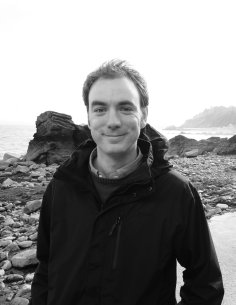
Me räägime sageli vaimust kui siseilmast. Kartesianism võtab sellist juttu tõsiselt. Kunagi peeti meie siseilma veidraks, immateriaalseks substantsiks. Tänapäeval öeldakse, et siseilm asetseb ajus. Läbi aastate on mõned filosoofid, eelkõige biheivioristid püüdnud hakkama saada ilma selle siseilmata. Kuid nende pingutused on enamasti luhta läinud. Need loengud pakuvad välja uue, mentaalse fiktsionalismina tuntud lähenemise vaimule. Selle lähenemisviisi kohaselt on meie vaimu mõiste metafoorne: me projitseerime inimkultuuri, eriti keele „välisilma“ vaimsesse „siseilma“. See siseilm on kasulik väljamõeldis: seda pole olemas – ja ometi ei saa me sellest rääkimata jätta. Loengutes tutvustatakse seda ideed ja uuritakse selle mõju võtmeküsimustele, mis puudutavad vaimu päritolu, piire ja ajalugu. Loengud põhinevad Adam Tooni hiljutisel raamatul „Mind as Metaphor: A Defense of Mental Fictionalism“ (Oxford University Press, 2023).
Loengud 5.–7. detsember 2023 olid (inglise keeles):
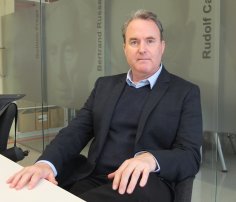
Daniel D. Hutto on Wollongongi ülikooli filosoofilise psühholoogia vanemprofessor ja vabade kunstide osakonna juhataja.
Enaktivism on ennast tõestanud arvestatava jõuna tänapäeva vaimufilosoofias ja kognitiivteadustes. Mitmed enaktivismi kaitsjad rõhutavad, et kui võtta omaks enaktivismi raamistik, muutuvad need viisid, kuidas mõtleme metafüüsikast, epistemoloogiast, keelefilosoofiast ja isegi eetikast ning poliitikast. Loengusarja ühendab eesmärk hoolikalt uurida neid ettepanekuid ja esitada neile väljakutseid. Frege loengud teemal “Miks ma ei ole enaktivist” vaatlevad kriitiliselt mitmesugustele kaasaja enaktivismi versioonidele omaseid tuumsidumusi sellistel teemadel nagu tähendusloome, elulised normid, objektiivsus, naturalism, mõisted, tõde, eetika ja poliitika.
Loengud toimusid inglise keeles.
Loengud
Reaffirming Presence, Experience, and the World
The Matter with Mattering
A Positively Relaxed Naturalism
Concepts in Our Midst: Artefacts, Institutions and Folk Philosophies
The Truth of (Radical) Enactivism"
Public Lecture: Truth, Justice, and the Enactive Way.

Loengud olid seotud Eesti-uuringute Tippkeskusega (Euroopa Liidu Regionaalarengu Fond)
Jennifer Nagel (Toronto): Epistemic Interaction
Foto: Bruno Mölder, Tartu Ülikool
Jennifer Nagel is a professor of philosophy at the University of Toronto and the president of the Central Division of the American Philosophical Association (2018-19). She is working mainly in the fields of epistemology and philosophy of mind with a focus on metacognition and the attribution of knowledge and belief. She is the author of Knowledge: A Very Short Introduction (Oxford University Press, 2014) and several important papers in the intersection of epistemology and the philosophy of mind.
The Lectures:
In the regular flow of human conversation, we send many signals to each other about what we do and do not know. This series of lectures begins by examining what sociologists working in conversation analysis call “the epistemic backchannel”, with an eye to understanding its purpose and its impact on communication. Empirical work on representations of the epistemic gradient between speakers can help philosophers understand the social division of epistemic labor. At the same time, empirical theories of what is happening in the backchannel can be improved by philosophical attention to the distinction between knowing and merely seeming to know. Subsequent lectures will examine the features of our instinctive knowledge attribution mechanisms that make skeptical arguments attractive, and what the limits of these mechanisms can tell us about the relationship between knowledge and argumentative support.
Times and Venue
September 17 – Jakobi 2-114
10.15-11.45: The epistemic backchannel
14.15-15.45: Epistemic territory in conversation
September 18 – Jakobi 2-336
10.15-11.45: Factive mental states
14.15-15.45: Mindreading in the predictive processing framework
September 19
10.15-11.45: Knowledge, justification, and argument (Jakobi 2-114)
14.15-15.45: The natural origins of philosophical skepticism (Public lecture at Jakobi 2 lecture theatre, 226))
The event is related to the Centre of Excellence in Estonian Studies (European Union, European Regional Development Fund) and to the research project IUT20-5 (Estonian Ministry of Education and Research).
The event is related to the Centre of Excellence in Estonian Studies (European Union, European Regional Development Fund) and to the research project IUT20-5 (Estonian Ministry of Education and Research).

Timothy Williamson (Oxford): Philosophical Methods
Foto: Bruno Mölder, Tartu Ülikool
The Lecturer:
Timothy Williamson is the Wykeham Professor of Logic at Oxford University and a professorial fellow of New College, Oxford. He is a fellow of the British Academy and the Royal Society of Edinburgh, and a foreign member of several learned societies. He has been President of the Aristotelian Society and the Mind Association. Williamson has been widely recognised for his significant contributions to philosophy of language and logic, metaphysics, epistemology and metaphilosophy. His books include Identity and Discrimination (1st ed. Blackwell, 1990), Vagueness (Routledge, 1994), Knowledge and Its Limits (Oxford University Press, 2000), The Philosophy of Philosophy (Blackwell, 2007), Modal Logic as Metaphysics (Oxford University Press, 2013), Tetralogue: I'm Right, You're Wrong (Oxford University Press, 2015) and Doing Philosophy: From Common Curiosity to Logical Reasoning (Oxford University Press, 2018).
The lectures:
The first five lectures will explain philosophical ways of thinking in terms of an understanding of philosophy as a theoretical science, though not a natural science (mathematics is another example of such a science). They will conclude with an account of the nature of much progress in philosophy. The lectures are based on Timothy Williamson’s recently published book Doing Philosophy: From Common Curiosity to Logical Reasoning.
The last lecture is a public lecture and it will explain how the imagination generates not only fiction and fantasy, but both practical and theoretical knowledge of the real world.
Times and Venue
September 4 – Jakobi 2, 336
10.15-11.45: Common Sense and Disputation
14.15-15.45: Clarifying Terms
September 5 – Jakobi 2, 336
10.15-11.45: Doing Thought Experiments
14.15-15.45: Comparing Theories
September 6
10.15-11.45: Logic and Model-Building (Jakobi 2, 336)
14.15-15.45: Knowledge from Imagination (public lecture at Jakobi 2 lecture theatre, 226)
The event is related to the Centre of Excellence in Estonian Studies (European Union, European Regional Development Fund) and to the research project IUT20-5 (Estonian Ministry of Education and Research).

Tim Crane (Central European University): Thoughts, Thinking, and Thinkers
Foto: Bruno Mölder, Tartu Ülikool
The Lecturer:
Tim Crane is a professor of philosophy in the Department of Philosophy at the Central European University. He has founded the Institute of Philosophy in the University of London and he is the President of the Aristotelian Society for 2016-17. Crane is well-known for his work in philosophy of mind and metaphysics. His books include The Mechanical Mind: A Philosophical Introduction to Minds, Machines and Mental Representation (1st ed. Penguin 1995), Elements of Mind (Oxford University Press 2001), Intentionalität als Merkmal des Geistigen: Sechs Essays zur Philosophie des Geistes (Fischer Verlag 2007), The Objects of Thought (Oxford University Press, 2013), Aspects of Psychologism (Harvard University Press, 2014), and The Meaning of Belief: Religion from an Atheist's Point of View (Harvard University Press 2017). He has also edited several books on topics in philosophy of mind and metaphysics.
The lectures:
One of Frege’s most famous principles was ‘always to separate sharply the psychological from the logical, the subjective from the objective’. Given Frege’s influence on analytic philosophy, it is surprising that the philosophy of mind has not followed his advice here. Many discussions of intentionality or mental representation, for example, have concentrated exclusively on the nature of the proposition, whether in the specific version defended by Frege in ’The Thought’ (1918), or the versions defended by Bertrand Russell, David Lewis or Robert Stalnaker. But it is not obvious what the theory of the proposition has got to do with the psychological, as opposed to (say) the semantics of propositional attitude attributions. Frege himself distinguished between thoughts (propositions) and ideas, or mental representations. In these lectures Tim Crane examines the consequences of following Frege’s advice, and approaching the study of thinking or intentionality in terms of ideas rather than propositions.
Times and Venue
October 9 - at Jakobi 2, 336
10.15-11.45: Intentionality: the state of the debate
14.15-15.45: Thoughts
October 10 - at Jakobi 2, 336
10.15-11.45: Thinking
14.15-15.45: Thinkers
The event is supported by the Centre of Excellence in Estonian Studies, and the University of Tartu ASTRA Project PER ASPERA (Graduate School of Linguistics, Philosophy and Semiotics), and financed by the (European Union) European Regional Development Fund.

Huw Price (University of Cambridge): Naturalism, Pragmatism and Representationalism
Foto: Bruno Mölder, Tartu Ülikool
The Lecturer
Huw Price is Bertrand Russell Professor of Philosophy at the University of Cambridge and a Fellow of Trinity College, Cambridge as well as Academic Director of the Centre for the Study of Existential Risk, which he founded in 2012 with Martin Rees and Jaan Tallinn. Previously he has been a professor at the University of Sydney and at the University of Edinburgh. He is a Fellow of the British Academy and the Australian Academy of the Humanities.
Price has published books on philosophy of physics (Time's Arrow and Archimedes' Point (OUP, 1996); (co-ed with Richard Corry) Causation, Physics, and the Constitution of Reality: Russell's Republic Revisited (OUP, 2007)), and on topics such as truth, naturalism, pragmatism and expressivism (Facts and the Function of Truth (Blackwell, 1988), Naturalism Without Mirrors (Oxford University Press, 2011), Expressivism, Pragmatism and Representationalism (Cambridge University Press, 2013).
The Topic
Huw Price will deliver three lectures, under the general title "Naturalism, pragmatism and representationalism"
There has been much recent interest in a position variously described as global or universal expressivism, or as non-representational pragmatism. For example, in a 2015 interview Allan Gibbard describes his progress to such a view, saying “As I use the term ‘expressivism’, I, like Price and Horwich, am a universal expressivist.” Other enthusiasts for the view, from rather different directions, include Robert Brandom and Simon Blackburn. In these lectures, Price sets out his own motivations for taking such a view seriously, and his conception of what it involves.
June 27 - at Jakobi 2, 336
11:15-12:45: Two Notions of Naturalism
15:15-16:45: Representationalism – From Nihilism to Dualism
June 28 - at Jakobi 2, 336
11:15-12:45: The End of ‘the World’
Frege lectures are rounded off with a public discussion on existential risks between Huw Price and Jaan Tallinn, a founding engineer of Skype and Kazaa. Tallinn is a co-founder of the Cambridge Centre for the Study of Existential Risk (cser.org), Future of Life Institute (futureoflife.org), and philanthropically supports other existential risk research organizations. He is also a partner at Ambient Sound Investments (asi.ee), an active angel investor, and has served on the Estonian President's Academic Advisory Board.
16:15-18:00: A Taxi to the Twenty-Second Century – the Cambridge-Tallinn Connection. At Jakobi 2, lecture theatre (226)
Huw Price and Jaan Tallinn met in a taxi in Copenhagen in 2001. From that unpromising starting point, they came together with the distinguished British astronomer, Lord Martin Rees, to co-found a Centre in Cambridge to increase the probability that this will not be, in Lord Rees' words, "our final century". In this event Price and Tallinn will talk and answer questions about the history and vision of their Cambridge Centre for the Study of Existential Risk (CSER.ORG), and the broader global community of researchers of which it is now an important part.
Supported by the Centre of Excellence in Estonian Studies (European Union, European Regional Development Fund).
Jennifer Saul (University of Sheffield): Language that Matters: Politically and Ethically Significant Speech
The Lecturer - Jennifer Saul
Jennifer Saul is head of the Philosophy Department at the University of Sheffield, UK. Saul's primary research is in analytic philosophy of language and feminist philosophy. In her most recent book, Lying, Misleading and What is Said: An Exploration in Philosophy of Language and in Ethics (Oxford University Press 2012), she argues that the distinction between lying and misleading is theoretically significant and illuminates a variety of issues in philosophy of language concerning semantic content, implicature, and assertion. Moreover, because it is also an ethically meaningful distinction, it demonstrates some ways in which communication and speech are apt for ethical analysis.
In philosophy of language, Saul is also known for her work on substitution of co-referential terms in simple sentences. In 2007, Saul published Simple Sentences, Substitution and Intuitions (Oxford University Press) in which she develops her views on these issues with attention to their methodological implications.
In feminist philosophy, Saul is known for her book Feminism: Issues & Arguments, Oxford University Press (2003), an introductory text that explores a variety of feminist views and explores their application to controversies over such topics as pornography, abortion, and veiling.
From 2011-2013, Saul was Director of the Leverhulme-funded Implicit Bias and Philosophy International Research Project. The project brought together nearly 100 researchers in philosophy and psychology to explore the implications of research on implicit bias and related topics for epistemology, philosophy of mind, and moral/political philosophy. Jennifer Saul is Director of the Society for Women in Philosophy UK and Co-Chair of the British Philosophical Association's Women in Philosophy Committee. She is on the Editorial Board for Symposia in Gender, Race, and Philosophy, and on the Analysis Committee. In 2011 she received Distinguished Woman Philosopher Award in Washington, DC by the Society for Women in Philosophy.
The Topic
Jennifer Saul's 2015 Frege Lectures, "Language that Matters: Politically and Ethically Significant Speech", concern a collection of issues at the under-explored intersection of philosophy of language with moral and political philosophy. The first two lectures explore subtle ways of communicating racist ideas that are no longer considered fit for explicit expression. Lectures 3 and 4 explore the distinction between lying and misleading, exploring both the proper way to draw this distinction and its ethical significance. Lecture 5 steps back from specifically linguistic issues to look at reasons for the under-representation of women and members of other (and overlapping) groups. Lecture 6 returns to philosophy of language with a close look at the pragmatics of efforts to rectify this under-representation.
The Lectures
June 30:
11:15-12:45: Dogwhistles: Political Manipulation and Philosophy of Language
15:15-16:45: Generics Don't Essentialise People; People Essentialise People!
July 1:
11:15-12:45: Just Go Ahead and Lie
15:15-16:45: Lying, Misleading and What is Said
July 2:
11:15-12:45: Implicit Bias, Stereotype Threat and Women in Academia
15:15-16:45: The Pragmatics of Inclusivity
François Recanati: Contextualism and Singular Reference
Foto: Bruno Mölder, Tartu Ülikool
The Lecturer
François Recanati has taught in several major universities around the world, including Berkeley, Harvard, Geneva, and St Andrews. In addition to being research fellow at the Centre National de la Recherche Scientifique (CNRS) in Paris, he is a ‘directeur d’études’ at EHESS, and the Director of a research lab in philosophy, linguistics and cognitive science at Ecole Normale Supérieure. His numerous publications in the philosophy of language and mind include Meaning and Force (Cambridge University Press, 1987), Direct Reference : From Language to Thought (Blackwell 1993), Oratio Obliqua, Oratio Recta (MIT Press/Bradford Books 2000), Literal Meaning (Cambridge University Press, 2004), Perspectival Thought (Oxford University Press, 2007), Philosophie du langage (et de l’esprit) (Gallimard 2008), Truth-Conditional Pragmatics (Oxford University Press, 2010) and Mental Files (Oxford University Press, 2012). He is a co-founder and past President of the European Society for Analytic Philosophy, and has been elected a Foreign Honorary Member of the American Academy of Arts and Sciences in 2012.
Times and Venue
The lectures will take place in Jakobi 2, room 336. The lectures are each day, June 17-19, from 11:15-12:45 and 15:15-16:45
The Lectures
In the lectures professor Recanati will discuss three debates that have taken place in the philosophy of language since the mid-twentieth century: the debate between ‘ideal language philosophy’ and ‘ordinary language philosophy’ in the fifties and sixties, the debate over speaker's reference and the attributive/referential distinction in the sixties and seventies, and the debate between contextualism and minimalism which started in the eighties and culminated a few years ago. These debates, he will argue, are facets of one and the same controversy over the foundations of semantics. The controversy is still alive today: it is a mistake to believe that the issue has settled by the famous arguments put foward by Geach, Grice and Kripke against their contextualist opponents.
Wolfgang Spohn: Reflexive Rationality
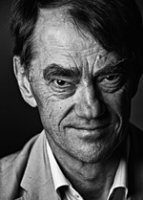
The Lecturer - Wolfgang Spohn
Wolfgang Spohn is chair of philosophy and philosophy of science at the University of Konstanz (since 1996). Before, he held professorhsips at Regensburg and Bielefeld. Wolfgang Spohn is one of the most distinguished philosophers of science today, Fellow Elect at the Center for Advanced Study in the Behavioral Sciences, Stanford, and Member of the Deutsche Akademie der Naturforscher Leopoldina. In December 2012 he won the Lakatos Award in Philosophy of Science for his book The Laws of Belief: Ranking Theory and its Philosophical Implications (Oxford University Press, 2012). He has published widely on topics in theoretical philosophy (epistemology and philosophy of science, in particular induction and causation; metaphysics; philosophy of language and philosophy of mind; logic, philosophical logics, and philosophy of logic and mathematics; action theory, decision theory, game theory, social choice theory, and the theory of practical rationality in general), but is perhaps best know for his work on Ranking Theory.
We are very glad that Wolfgang Spohn has accepted our inivitation to present the GOTTLOB FREGE LECTURES IN THEORETICAL PHILOSOPHY in 2013. Everyone interested is invited to participate.
The Lectures
Tuesday, June 25
11.15 – 12.45: 1. Standard decision models
15.15 – 16.45: 2. Endogenous preference change
Wednesday, June 26
11.15 – 12.45: 3. Reflexive decision theory
15.15 – 16.45: 4. Standard game theory
Thursday, June 27
11.15 – 12.45: 5. Extension of reflexive decision theory to game theory
15.15 – 16.45: 6. Open Discussion
John Perry: Three Theories of the Attitudes, June 26-28
The Lecturer - John Perry
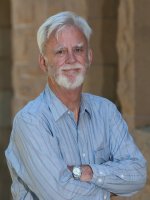
From the preface of Identity, Language, and Mind: An Introduction to the Philosophy of John Perry:
[John Perry's] approach is marked by three features: precision, clarity, and candor. The more than one hundred articles and books authored by Perry prove that these goals can be achieved with elegance and style. It is no wonder that John Perry inspired generations of students during his impressive career.
Having finished his PhD at Cornell University in 1968, he was appointed Assistant Professor at UCLA. At Stanford University, he became Associate Professor in 1974 and Full Professor in 1977. He also spent several months in 1971/72 as a Visiting Assistant Professor at the University of Michigan, Ann Arbor. Perry has received many academic awards and also spent the academic years 1991/92 and 1999/2000 in Europe, first as a Visiting Fellow at the Centre de Recherche en Epistémologie Appliquée in Paris, where he delivered the Jean Nicod Lectures (Nicod Prize 1999), and then as a Humboldt Awardee (1999/2000) at the University of Bonn. Perry essentially initiated and formed the famous Center for the Study of Language and Information (CSLI) at Stanford University, and he is still one of the main figures in modern philosophy of mind and language.
John Perry is one of the most distinguished analytic philosophers of language, with important contributions to the study of communication and the semantics/pragmatics divide. In addition to his important contributions to the academic debate, Perry is (with Stanford professor Ken Taylor) also the co-host of PHILOSO?HY TALK, a radio programme in philosophy.
We are extremely glad that John Perry has accepted our inivitation to present the GOTTLOB FREGE LECTURES IN THEORETICAL PHILOSOPHY this year. Everyone interested is invited to participate.
The Lectures
All lectures take place in Jakobi 2, 336.
Tuesday, June 26
11:15-12: 45
I. Folk-psychology as an amazing Intellectual Accomplishment
15:15-16:45
II. Three theories of the attitudes
Wednesday, June 27
11:15-12: 45
III. Self-Locating Belief
15:15-16:45
IV. Beliefs about the Self
Thursday, June 28
11:15-12: 45
V. The general theory of Content (Reflexive/Referential Theory)
15:15-16:45
VI. Reporting Attitudes
David Papineau: Varieties of Naturalism, June 29-July 1

The Frege Lectures in Theoretical Philosophy will in 2011 be delivered by David Papineau. Professor Papineau is an internationally renowned philosopher, well known for his work on various topics, including metaphysics, philosophy of science, and the philosophy of mind and psychology.
The Topic
Over the past fifty years philosophy has increasingly taken a naturalist turn. However, many different philosophical positions have enrolled under the banner of naturalism, not all of them compatible with each other.
One strand in naturalism is methodological, asserting that the investigative methods of philosophy are continuous with those of the natural sciences. Methodological naturalists of this kind deny that philosophy depends on conceptual analysis or any other special method of investigation. This raises questions about existing philosophical practice and its frequent appeal to 'intuitions'. A further issue raised by this species of naturalism is whether the same methodological principles apply in all branches of philosophy, including ethics and philosophy of mind.
A distinct strand in naturalism is concerned with ontological issues. Ontological naturalists assert that there is nothing in reality beyond the kind of entities studied by science. For many contemporary naturalists, this involves a commitment to materialism or physicalism. However, materialism comes in many different strengths, and so it is a matter of debate what this commitment amounts to. There are also questions about the implications of materialism for such realms as morality, mathematics and mind.
These lectures will explore the different varieties of naturalism and assess their strengths and weaknesses
Times
All lectures take place in Domus Dorpatensis, Ülikooli 7.
| Wednesday, June 29 | 14:00-16:00 | Metaphysics |
| Thursday, June 30 | 16:00-18:00 | Methodology |
| Friday, July 1 | 14:00-16:00 | Morality |
The Lecturer - David Papineau
David Papineau was educated in Trinidad, England, and South Africa. He has a BSc in mathematics from the University of Natal and a BA and PhD in philosophy from the Cambridge University.
He has lectured at Reading University, Macquarie University, Birkbeck College London, and Cambridge University, and since 1990 has been a Professor at King's College London.
His books include For Science in the Social Sciences (1978), Theory and Meaning (1979), Reality and Representation (1987), Philosophical Naturalism (1993), Introducing Consciousness (2000), Thinking about Consciousness (2002) and The Roots of Reason (2003).
He was President of the British Society for the Philosophy of Science from 1993 to 1995 and Editor of the British Journal for the Philosophy of Science from 1993 to 1998. In 1999-2000 he was a Leverhulme Research Fellow and in 2007 a Mind Fellow. He was President of the Mind Association in 2009-10.
Stephen Stich (Rutgers): Experimental Philosophy & The Bankruptcy of the "Great Tradition", June 28-30
The Topic

From Plato to the present, appeal to intuition has played a central role in philosophy. However, recent work in experimental philosophy has shown that in many cases intuition cannot be a reliable source of evidence for philosophical theories. Without careful empirical work, there is no way of knowing which intuitions are unreliable. Thus the venerable tradition that views philosophy as a largely a priori discipline that can be pursued from the armchair is untenable.
The first two lectures will survey some of the ways in which intuition is used in philosophy, give an overview of the growing body of evidence indicating that intuition is often unreliable, and develop the argument that this evidence undermines the tradition of armchair philosophy. In the third lecture, the focus will be on gender. There is now a substantial body of evidence indicating that men and women have significantly different intuitions about a number of philosophically important thought experiments. These differences, it will be argued, are part of the explanation for the serious under-representation of women in academic philosophy.
The Lecturer
Stephen Stich is Board of Governors Professor of Philosophy and Cognitive Science at Rutgers University and Honorary Professor of Philosophy at the University of Sheffield. At Rutgers he directs the Research Group on Evolution and Higher Cognition. At Sheffield he was actively involved in the Innateness and the Structure of the Mind Project and is currently on the Organizing Committee for the Culture and the Mind Project. He has done work in the philosophy of mind, the foundations of cognitive science, naturalized epistemology, theory of mind and moral psychology.
Stich received his B.A. from the University of Pennsylvania in 1964 and his Ph.D. from Princeton University in 1968. In addition to Rutgers and Sheffield, he has taught at the University of Michigan, the University of Maryland and the University of California, San Diego and has held visiting appointments at universities in the United States, the U.K., Australia and New Zealand.
Suggested Readings
J. Weinberg, S. Nichols & S. Stich, “Normativity & epistemic intuitions,” Philosophical Topics, 29, 1 & 2, 2001. Pp. 429-460.
E. Sosa, “A defense of the use of intuitions in philosophy” in D. Murphy & M. Bishop, eds., Stich and His Critics. Oxford: Blackwell.
S. Stich, “Reply to Sosa,” in D. Murphy & M. Bishop, eds., Stich and His Critics. Oxford: Blackwell.
A. Goldman, “Philosophical intuitions: their target, their source, and their epistemic status,” Grazer Philosophische Studien 74, 2007.
W. Sinnott-Armstrong, “Framing Moral Intuitions,” in Moral Psychology, vol. 2, The Cognitive Science of Morality: Intuition and Diversity, Cambridge, MA: MIT Press, 2008.
Simon Blackburn: Reason and Representation, September 21-23, 2009
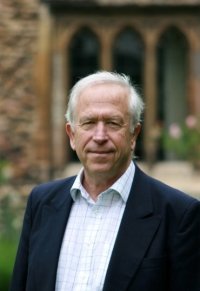
The 2009 Frege Lectures in Theoretical Philosophy will be delivered by Prof. Simon Blackburn from Cambridge University. Professor Blackburn is an internationally renowned philosopher, who, in recent years, also became widely known outside academic philosophy for his success in popularizing philosophical discussions in his books Think (CUP 1999), Being Good (OUP 2001), Lust (OUP 2004), and Truth: A Guide (OUP 2005). His The Oxford Dictionary of Philosophy (OUP 1994) is translated into Estonian (Oxfordi filosoofialeksikon, Vagabund 2002).
The Lecturer - Simon Blackburn
Simon Blackburn is Professor of Philosophy at the University of Cambridge's Faculty of Philosophy and Research Professor of Philosophy at the University of North Carolina. He is also a fellow of Trinity College, Cambridge, and has previously held teaching posts at Pembroke College, Oxford and the University of North Carolina as an Edna J. Koury Professor. In philosophy, he is best-known as the proponent of quasi-realism in meta-ethics and as a defender of neo-Humean views on a variety of topics. Simon Blackburn is a Vice-President of the British Humanist Association and a former editor of the journal Mind.
Times and Titles
All lectures will be held in Domus Dorpatensis, Ülikooli 7
| Date | Time | Title |
| Monday, 21.09 | 16:15-17:45 | Carnapian External Questions: Representationalist and Pragmatist Answers |
| Tuesday, 22.09 | 10:15-11:45 | Deflationism in the Later Wittgenstein |
| Tuesday, 22.09 | 16:15-17:45 | The Impact of Deflationism |
| Wednesday, 23.09 | 10:15-11:45 | Ontology, Commitments and Semantics |
Paul Boghossian: Objective Knowledge, June 10-13, 2008

The Frege Lectures in Theoretical Philosophy will in 2008 be delivered by Paul Boghossian, Silver Professor of Philosophy, New York University. Professor Boghossian is an internationally renowned philosopher, well known for his work on various topics, including color, rule-following, eliminativism, naturalism, self-knowledge, a priori knowledge, analytic truth, realism, relativism, the aesthetics of music and the concept of genocide. Professor Boghossian's recent critique of relativism and constructivism, Fear of Knowledge (OUP 2006), received wide recognition and was named Choice Outstanding Academic Book 2006. We are happy to have him at Tartu from June 10 to 13 2008.
The Lecturer - Paul Boghossian (Silver Professor of Philosophy, New York University)
His research interests are in the philosophy of mind, the philosophy of language and in epistemology. He is the author of numerous works on a variety of topics, including color, rule-following, eliminativism, naturalism, self-knowledge, a priori knowledge, analytic truth, realism, relativism, the aesthetics of music and the concept of genocide. He has held research fellowships from the National Endowment for the Humanities, Magdalen College (Oxford), the School of Advanced Study (University of London), and from the Australian National University (Canberra). He has been a Visitor at the Institute for Advanced Study in Princeton, a Fulbright Senior Specialist and is a fellow of the New York Institute for the Humanities. He has also taught at the University of Michigan at Ann Arbor and at Princeton.
Times and Titles
All lectures take place in Domus Dorpatensis, Ülikooli 7, Tartu.
| Tuesday, June 10 | |
| 15:00-17:00 | Relativism: Old and New I |
| Wednesday, June 11 | |
| 15:00-17:00 | Relativism: Old and New II |
| 17:00-19:00 | Epistemic Objectivism |
| Thursday, June 12 | |
| 15:00-17:00 | Epistemic Rules |
| Friday, June 13 | |
| 12:00-14:00 | Epistemic Rules and Meaning |
The Topic
Recent philosophy has seen a huge amount of interest in relativism, understood as a semantical thesis. Professor Boghossian will examine the ways in which traditional relativism differs from this “new age” relativism and will look at the problems that each faces. After that he will examine issues that arise in defending the thesis that there can be objective facts about epistemic justification and take a closer look at the question of whether we could be said to have epistemic systems that guide our belief formation.
Wolfgang Künne: Conceptions of Truth, February 13-15, 2007
The Frege Lectures in Theoretical Philosophy will in 2007 be delivered by Prof. Dr. Wolfgang Künne from the University of Hamburg. Professor Künne is an internationally renowned philosopher who is well known for his research in metaphysics, the philosophy of language, and history of philosophy. His recent book Conceptions of Truth (OUP 2003) has received wide recognition. We are happy to have him at Tartu for a three day workshop in the beginning of February, 13.-15.02.2007.
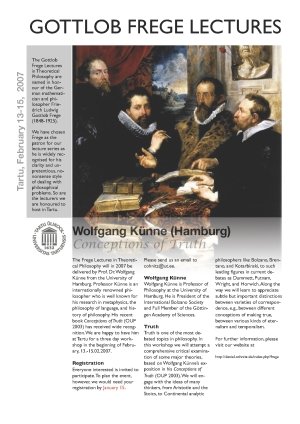
The Lecturer
Wolfgang Künne is Professor of Philosophy at the University of Hamburg. He is author of Abstrakte Gegenstände (1983, 2nd edition forthcoming) and Conceptions of Truth (2003), co-editor of Direct Reference, Indexicality, and Propositional Attitudes (1997) and Bolzano and Analytic Philosophy (1997), and editor of Was ist Wahrheit? (2007) and Frege, Logische Untersuchungen (2007). He is President of the International Bolzano Society and Full Member of the Göttingen Academy of Sciences.
The Topic - Conceptions of Truth
Truth is one of the most debated topics in philosophy. In this workshop we will attempt a comprehensive critical examination of some major theories, based on Wolfgang Künne’s exposition in his Conceptions of Truth (OUP 2003). We will engage with the ideas of many thinkers, from Aristotle and the Stoics, to Continental analytic philosophers like Bolzano, Brentano, and Kotarbinski, to such leading figures in current debates as Dummett, Putnam, Wright, and Horwich. Along the way we will learn to appreciate subtle but important distinctions between varieties of correspondence, e.g., between different conceptions of making true, between various kinds of eternalism and temporalism. Professor Künne will give lectures on
Tõe käänuline tee. Intervjuu filosoofiaprofessor Wolfgang Künnega. Daniel Cohnitz, Kristi Lõuk ja Bruno Mölder, Sirp, 09.02.2007